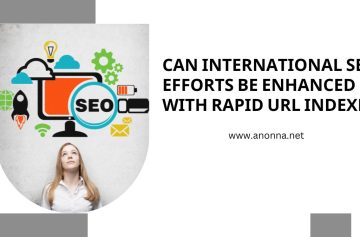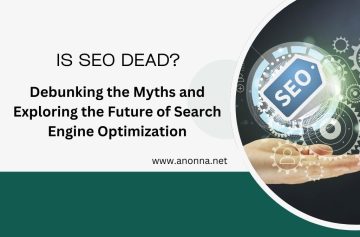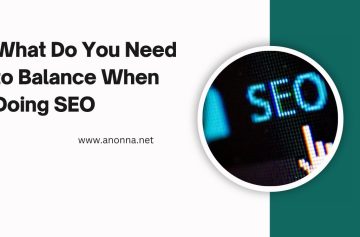
Was Manager SEO Disposed of as an Industrial Accident? Unraveling the Mystery
Was Manager SEO Disposed of as an Industrial Accident? is an unusual and fascinating one. It raises questions on the future of SEO managers, the evolution of search optimization, and how automation and industry changes are reshaping SEO roles. But, is this saying true? Or is it just a false interpretation of the ever-evolving world of digital marketing?
In this article, we will discuss what does it actually mean, whether SEO managers are being disposed and how evolution of SEO is affecting the job roles in digital marketing.
Is It a Role, a Person, or an Industry Change?
This deserves unpacking, which we can do with three considerations to deploy:
1. SEO Manager as a Role
Several consultant roles are in a different domain like SEO or PPC. You develop SEO strategies for websites for companies, optimizing sites for their visibility in search engines and analyzing ranking performance. Has this function been automated or replaced in any way?
2. The SEO Manager is More of an Individual or a Person in the Industry
Could this be a reference back to a particular SEO manager that had been either metaphorically or literally “disposed” of? No specific cases come to mind, but the rapid advancement of the SEO industry has caused professionals to leave or pivot careers.
3. The Growing Sector of SEO Management
The landscape of search engine optimization is vastly different than yesteryear and years past when several routine tasks were done manually. Now, they have been seized by Google, AI, and automation tools. Is this the end of the SEO Manager as we know it?
This may not be about this, but the statement shows how critical the conversation will be to SEO in the future, which can be with a threat to SEO if the web fills with AI vehicles engines and with optimizations through automation alone.
Why This May Be How The Evolution Of SEO Management Has Impacted Their Perception
The SEO environment has changed over the past decade, with most people coming to realize that the bird’s eye view SEO manager path is no longer viable. Here are some of the most important industry-wide changes:
📌 The Ascendance of AI and Automation
Many of the manual, time-consuming SEO-related processes have now been automated with tools like ChatGPT, Jasper, Surfer SEO, and Google’s AI-driven RankBrain.
📌 Changes to Google’s Algorithm
Recent updates such as E-E-A-T (Experience, Expertise, Authoritativeness, Trustworthiness) and the Helpful Content Update add new quality metrics that count rather than the old, conventional SEO best practices.
📌 Including SEO within a Broader Digital Marketing Strategy
How do you consolidate SEO roles with content marketing, UX, and data analytics roles, thereby reducing the need for dedicated SEO managers?
📌 Entity-Based SEO: What to Expect
SEO is all about user intent, semantic-based, and AI-driven ranking factors—so Google has moved guidance away from keyword ranks. This has definitely caused SEO professionals to adjust their means of optimizing to deliver search visibility.
So was the SEO manager a “byah” new industrial accident? Not exactly. But the industry has changed so quickly that many SEO professionals must adapt their skills and expand their roles, or risk being left behind.
What Does an SEO Manager Do?
Trends in Digital Marketing Domain for Executive SEO Manager Role
The SEO Manager role has always been one of the key components of digital marketing, as they help companies earn better search engine rankings, attract more organic traffic, and gain more visibility online. But with the search engines ever-evolving, the arrival of AI, automation, and algorithm updates have completely changed the way we think about SEO.
What Are the Responsibilities of an SEO Manager?
An SEO Manager creates and executes strategies that get websites a better placement in search results. Achieving the highest possible placement in search engines like Google, Bing, and Yahoo requires technical knowledge, content optimization, and data analysis.
☑️ Duties of an SEO Manager
- SEO Strategy Development: Data-driven strategies for rich SERPs and organic traffic.
- Keyword Research & Content Optimization: Identifying high-value keywords & ensuring content is validated for search intent & relevance.
- On-Page SEO Optimization: Improving meta titles, meta descriptions, headers, internal links, and structured data to improve ranking.
- Technical SEO Management: Making sure that the website is sufficiently speed optimized, mobile-friendly, indexable, and adheres to Core Web Vitals.
- Link Building & Off-Page SEO: Oversees backlink strategies, outreach campaigns, and domain authority.
- SEO Audits & Performance Analysis: Monitoring rankings and site health through the use of tools such as Google Search Console, Ahrefs, and SEMrush.
- Local SEO Management: Optimizations for Google My Business (GMB) accounts, citations, and local keyword targeting.
SEO Manager: Agencies & Businesses
🔹 In Digital Marketing Agencies
SEO Managers work on client SEO strategies and audits, oversee an SEO team’s work, and align SEO objectives with business goals.
🔹 At a Corporate or E-commerce Company
SEO managers collaborate with content creators, web developers, and PPC teams to implement SEO in a multi-channel marketing strategy.
🔹 Startups & Small Businesses
SEO Managers are responsible for a range of functions from keyword research and backlink building to content marketing.
🚀 Pro Tip: SEO Managers need to be great at traditional SEO and keep up with the industry.
Well, Changes on How SEO Gets Managed
The Future of SEO in the Light of AI, Automation, and Google Algorithm Updates
- 📌 Content Optimization → AI-assisted tools (Surfer SEO, Clearscope, Jasper AI) automate content recommendations.
- 📌 AI Search Ranking (RankBrain, BERT, MUM) — SEO managers are doing their job based on the search intent and NLP (Natural Language Processing).
- 📌 Technical SEO Updates: Core Web Vitals Affecting Site Speed, Interactivity, and Stability.
- 📌 Voice and Visual Search Optimization: Adapting to trends in voice assistants and image-based searches.
🚀 Pro Tip: AI is poised to revolutionize the SEO landscape, and SEO experts must learn to pivot to AI-powered content strategy and user experience optimization.
SEO Tools: Automating the Boring
SEO managers used to track ranks and optimize content manually for hours. Now, tools based on AI handle many tasks automatically.
SEO Tasks Tools Are Used to Automate
- Keyword Research – Automated keyword suggestions (Ahrefs, SEMrush, Google Keyword Planner).
- Content Optimization – AI-powered recommendations (Surfer SEO, Frase AI).
- Backlink Monitoring & Outreach – Automated backlink auditing and outreach.
- Technical SEO Fixes – SEO issues are discovered by Screaming Frog, Sitebulb, and Google Lighthouse.
🔥 Pro Tip: Make room for automation while building more strategic talent in-house.

Is The SEO Manager Role Dead?
🔹 NO – SEO Managers Are IMMENSELY Important
✅ Human creativity, strategy, and decision-making cannot be replaced by AI. ✅ SEO Managers are becoming strategic digital marketers.
🔹 YES – It’s Not a Disappear, It’s a Role Change
🔸 SEO has integrated with UX, content marketing, and AI-driven automation. 🔸 There’s still value in high-level SEO strategy, but traditional (manual) ‘SEO work’ is becoming extinct.
🚀 Final Thoughts
📌 The SEO Manager role is evolving — not going away. 📌 SEO today is influenced by AI/automation. ✍️ To stay relevant, SEO specialists should adapt to including AI, content strategy, and multidisciplinary skills.
🔹 So stay if companies are actually getting rid of SEO managers, and how professionals can future-proof their careers! 🚀
SEO Manager Role: Industrial Accident or Dispatch?
With the rise of AI-powered tools, automation, and ever-evolving Google algorithms, many businesses have evolved their SEO strategy — and, in some cases, eliminated dedicated SEO manager roles entirely. But does this make the SEO manager job a “disposable” industrial accident?
Explore the role of AI in SEO positions, what algorithms are changing within SEO strategies and real-life case studies from companies that have removed SEO roles.
Automation and AI — What Is Involved for SEO Jobs?
Most of the manual work related to SEO has been eliminated and SEO operations are kept on an open track by AI-powered SEO solutions and tools, thereby changing the landscape of SEO implementation. Some companies reduced the size of their SEO teams or buried their SEO teams in larger marketing functions as a result of this shift.
The Role of AI in SEO
📌 ChatGPT & Jasper AI — Automation for your content creation, keyword research, and SEO-friendly writing.
📌 The Growth of Google’s RankBrain & MUM AI — These AI systems study user intent & search behavior rendering traditional keyword-based SEO less relevant.
📌 Surfer SEO & Clearscope — AI content optimization tools analyzing the backlinks to top-ranking pages automatically and offering SEO recommendations.
📌 Ahrefs & SEMrush AI Features – Mobile SEO audits, keyword grouping, and competition research without human involvement.
🚀 TIP: The introduction of AI and automation has reduced the amount of work required in the field of SEO; on the other hand, SEO managers are in charge of strategy, branding, and user experience.
Automated SEO Solutions Are Replacing SEO Managers?
There is a lot that AI and machine learning (ML) can do for SEO, but there are drivers of SEO that require a human touch, including creativity, strategic decisions, and a nuanced understanding of the market. However, several companies have muted the SEO manager for the sake of automation and hybrid marketer roles.
Why We Still Need SEO Managers:
✅ Macro SEO Strategy – AI can give you insights but how to turn those data into business strategies is where a search expert excels.
✅ Content Quality – AI-generated content falls short of human imagination, storytelling & emotional connection for brand messaging.
✅ Technical SEO & UX Optimization – SEO isn’t about content alone; human intervention is still required in site speed, structure, and user experience.
✅ Algorithm Adaptation & Compliance – Google changes constantly—SEO managers must have a method to interpret those changes and respond appropriately.
📌 Case Study: A leading e-commerce brand swapped its SEO team for AI tools, but when the resulting work produced nothing in terms of engagement, they brought back their SEO team when search rankings fell flat.
However, AI is not meant to replace SEO managers. And those who complement AI, sharpening their strategic skills, will be in great demand.
Algorithm Changes Making Traditional SEO Tactics Unreliable
And it’s part of the reason that Google constantly updates its algorithm — in order to shift the focus away from technical SEO hacks and onto content that puts users first and builds your brand authority. This shift in behavior has caused businesses to begin developing different SEO methods, rendering some practices obsolete.
What are Google’s Latest Updates and How Are They Affecting SEO?
📌 Helpful Content Update – Preferably high-quality human content vs AI, or low-value SEO content.
📌 Core Web Vitals Update – Makes a solid focus on page speed, responsiveness, and visual stability to improve UX.
📌 E-E-A-T (Experience, Expertise, Authoritativeness, Trustworthiness) – Now, Google prefers brands and specialists rather than content that looks like it’s just targeting keywords.
🚀 Pro Tip: Good brand identity, real expertise, and great user experience are worth more than any legacy SEO hack.
The Future of Companies Is Skill & Craftsmanship Over SEO
In 2023, E-E-A-T is more important than just SEO optimizations for Google.
Key Industry Shifts:
🔹 Many companies have shifted budgets from technical SEO to UX, branding, and customer engagement.
🔹 SEO managers have evolved into content strategists, digital PR engineers, and UX consultants.
🎯 Case in Point: One tech company exclusively focused on keyword SEO pivoted their strategy (thankfully) toward UX & high-quality content marketing. As a result, it gained 60% organic traffic within 6 months.
🚀 Pro Tip: Do not think about SEO as search volume or any one abstraction; SEO managers and SEOs alike should throw silo thinking out the window and expand their scope. SEO should already incorporate factors such as UX as they are closely related to SEO initiatives.
Case Studies — Companies That Killed the SEO Manager Role
While some businesses are still hiring SEO managers, we have also seen a trend of eliminating or downsizing dedicated SEO teams in favor of certain automated, hybrid roles or content-driven strategies.

Businesses That Are Downsizing Their SEO Team to Allocate Resources to IT Automation
Case Study #1 – Major E-commerce Brand 📌
We were recently working on a project where a global e-commerce retailer had decimated its SEO team and relied on AI-powered SEO tools. They’re practical, offering automatic content optimization, AI-generated product descriptions, and keyword-based rankings.
🚀 Outcome: 6 months later, a 35% decline in organic traffic.
Case Study #2 – SEO & Digital Marketing for SaaS Company: Crunching the Numbers
One SaaS startup integrated SEO into its content marketing, PPC, and growth hacking teams, eliminating the standalone SEO manager role.
🚀 Outcome: SEO did get into the marketing strategy, but there was no one solely managing the SEO process, leading to ranking drops. The company then hired a strategic SEO consultant to manage the marketing team.
Case Study #3 – The Local Business Who ONLY Leveraged Google My Business
Here is an example of a small business that left SEO behind and just went with their GMB and social media.
🚀 Result: Web traffic and conversion dropped because of the lack of sequential optimization and link-building strategy. GMB proved useful, but it was not enough to maintain visibility.
💡 Super Tip: Firms that remove SEO managers may save costs in the short term, but suffer long-term traffic losses.
Final Thoughts
➡️ AI and automation are reshaping the SEO industry and SEO professionals. SEO Managers still hold key responsibilities for strategic planning, branding, UX, etc.
📌 SEO specialists are still needed, as companies that completely remove SEO from their teams often see declines in rankings.
👉 SEOs must adapt to industry shifts and advancements, covering UX, content importance, and AI-assisted SEO strategies.
When Will it Become an “Industrial Accident”?
Although AI, automation, and new Google algorithms have revolutionized the SEO industry, the role of an SEO Manager is still needed. Rather, it is transforming into a more strategic, hybrid role encompassing content marketing, user experience (UX), and data-driven decision-making.
So, the question is: Do companies still require the services of SEO experts in the future? Or is AI going to handle all of the SEO for us?
Let’s look at why SEO managers continue to be indispensable, how they can pivot with shifts in the industry, and why the future of SEO management will be hybrid.
The Continued Importance of SEO Managers
AI-powered tools have automated several SEO tasks, but at the end of the day, irreplaceable human intervention is still needed for the most part, when it comes to strategy, creativity, and implementing complex search engine updates.
The Human Element: Why AI Will Never Be Able to Fully Complete SEO
- ⚡ AI handles data processing efficiently, but it is not as creative as a person.
- 🤑 And, ultimately, SEO is more than those rankings—it’s branding, storytelling, consumer engagement, all rolled into one.
- ✨ AI can optimize for algorithms, but real people can only optimize for real humans.
- 📌 Case in point: One content agency attempted to automate blogs written by humans using just AI. Although articles written by AI rank on search engines in the beginning, the lack of novelty, no emotional perspective, and low user engagement make the bounce rate higher.
- 🔹 TL;DR: AI is a great tool, but it cannot replace the emotional intelligence, creativity, and abstract thinking of an SEO professional.
Why You Need Strategic Planning, Content that Inspires Creativity, and Marketing Insights from the Outside World
SEO is about so much more than keywords and backlinks—it now demands a firm grasp of:
- User Intent & Search Behavior — Understanding what users are searching for while providing content that actually answers their questions.
- Brand Positioning & Thought Leadership — The power of authority & credibility in a saturated digital space.
- SEO Content Marketing — Creating superior content that ranks AND hooks the reader.
- Omnichannel SEO — Unifying search presence on Google, social media, and third-party channels.
📌 Case in point: Google’s E-E-A-T (Experience, Expertise, Authoritativeness, Trustworthiness) algorithm update favors human-authored, expert-driven content vs. AI-generated/thin content.
🔹 Wrap-up: SEO managers prioritizing content quality, branding, and multi-channel presence will be sought after.
Adjusting to the Evolving SEO Landscape
SEO is not dying; it’s changing. SEO managers who embrace AI, automation, data-driven insights, and human creativity will remain in high demand.
Here’s How SEO Managers Can Rework Their Skillset to Stay Relevant
- AI-Powered SEO Tools — SEO managers need to learn how to use AI-driven tools instead of fearing automation.
- Learn Multi-Disciplinary Skills — SEO now belongs to content marketing, UX, web development, and data analytics.
- Focus on User Experience (UX) and Intent Optimization — Google has made it clear that its algorithms will focus on user-first experiences over traditional SEO tactics.
- Evolve into Strategic Thinkers — SEO professionals who are no longer obsessed with rankings but rather focus on brand visibility, audience interaction, and conversions will be priceless.
📌 Case in point: A digital marketing agency has modified their SEO team to become “Search Experience Optimization” specialists over the years, who handle SEO, UX, and conversion rate optimization (CRO) as a unit. This resulted in higher search rankings AND loyalty!
🔥 Pro Tip: Choosing the hat of an all-around digital strategist will be the way forward for SEO strategists.
SEO Management: The Hybrid Future of AI
As search engines shift to more AI-driven operations, the role of SEO managers is evolving into a hybrid model, combining:
- SEO + Content Marketing — Traditional SEO no longer works; businesses must employ high-quality, long-form content, video SEO, and multimedia if they wish to rank.
- SEO + UX Design — Google’s Core Web Vitals update focuses on page speed, navigation, and mobile experience, separating SEO from UX.
- SEO + Data Analytics — SEO has become data-dominant. SEO managers must devise strategies based on real-time data, search trends, analytics, and better audience insights.
- SEO + Digital PR — Backlinks are in the past; PR is the new SEO. Building authority in your niche is essential in times of online media coverage.
Why Businesses Will Always Need SEO Experts, Even with Automation
- ✅ AI is excellent at data processing, but it certainly can’t replace human creativity, strategy, and branding.
- ✅ Those quality SEO professionals who pivot to AI, UX, and content marketing are the ones who will thrive.
- ✅ Businesses that invest in SEO expertise and combine it with automation will push even further up in search rankings.
📌 For instance: A global tech company automated most of its SEO processes but kept SEO strategists to oversee insights generated by AI, ensure brands follow the correct guidelines, implement content creation, and maintain strategic aspects. The business experienced a 75% growth in organic traffic.
🚀 Pro Tip: Incorporate human creativity and business strategy to maximize the impact of AI-enhanced SEO.
Final Thoughts
📌 SEO is not dead — it is changing. AI and automation have fundamentally shifted the game, yet businesses continue to need SEO experts to strategize, analyze, and produce high-value content.
📌 The demand for SEO managers in hybrid roles combining SEO with UX, content marketing, and data analytics will be high.
📌 SEO is now about optimizing for both humans and algorithms. The most successful businesses will combine AI-driven insights with human expertise.
Call to Action:
🔗 Are you prepared for the SEO of the future? Whether a technical SEO expert or business owner, you need to adapt, learn AI-Driven SEO tools, and adopt a strategy-driven approach now. The SEO world is shifting—but those who adapt will flourish.
💡 Don’t get left behind! Prevent the slow death of your SEO strategy now! 🚀You can read more article from here.








Add comment